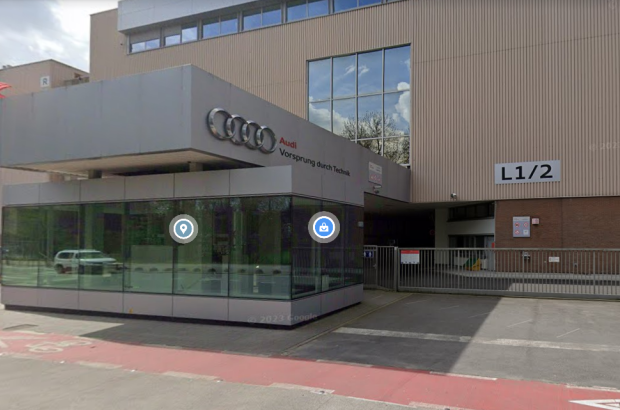- Daily & Weekly newsletters
- Buy & download The Bulletin
- Comment on our articles
Audi staff worried after temporary suspension of production
Work has resumed at Audi Brussels following a stoppage due to ambiguity over production of the car manufacturer's electric model Q4.
The car factory in Forest had been at a standstill since Monday morning, when management announced at a special works council that production of that model would be on hold for the time being.
While the plant’s spokesperson Peter D'Hoore said work has resumed and no impact on employment is anticipated - the Q8 e-tron continues to be produced there - unions say staff remain worried.
The longer-term consequences are unclear, workers say, with more clarity on the production schedule not available until mid-November.
While management reportedly said no restructuring is imminent, “the workers are obviously worried, because there remains a lot of uncertainty and they are disappointed after the efforts they made to build the Q4,” said unionist Ronny Liedts (ACV Metea).
Audi Brussels employs 3,000 permanent staff and some 500 temporary staff.
Production of the electric Q4 was due to start at the beginning of November at Audi Brussels before the temporary suspension was announced.
Staff on the morning shift had stopped work pending the works council meeting, though the total duration of the work stoppage is not known.
Audi Brussels was initially to build some 40,000 electric Q4s until mid-2026, with plants set up for this purpose but yet to be tested.
An estimated 100 to 200 cars will still be built this year for testing, but after that production of the model will be put on hold.
The mid-size SUV Q4 is already being built at an Audi plant in Zwickau in eastern Germany, but the plant in Brussels was also enlisted to build the model because of worries that the German plant alone would not be able to meet demand.
That demand turned out to be less than anticipated, meaning the German plant is able to meet it without help.
Subsidies for electric cars such as the Q4 have been scaled back in several countries, while the purchase price of such cars remains on the high side, especially for individuals, rather than companies purchasing them for their corporate fleet.
Audi parent group Volkswagen announced in mid-September that it would not renew the contracts of 269 temporary workers at its Zwickau plant, citing the weaker demand for electric cars.
Belgian trade unionist Jan Baetens of ACV Metea pointed out that 400 to 500 temporary workers are also working at Audi Brussels.
“We hope there will not be a similar scenario in Brussels as in Zwickau,” Baetens said.

















